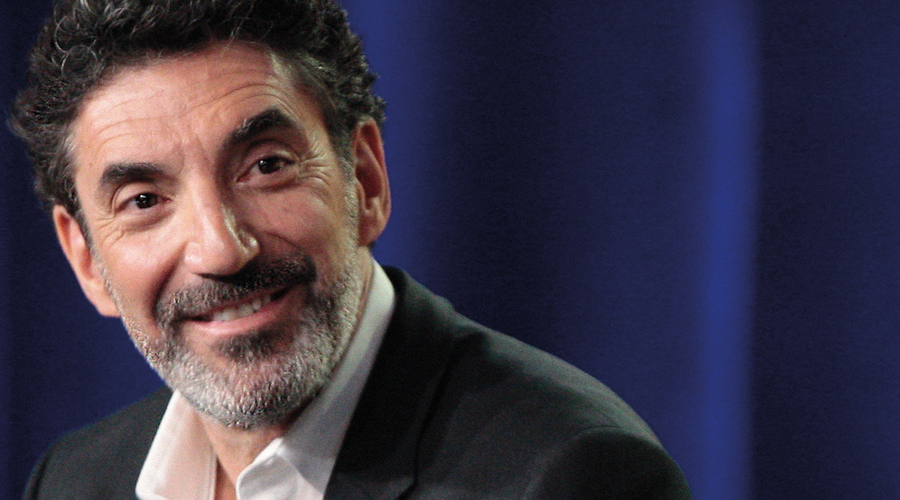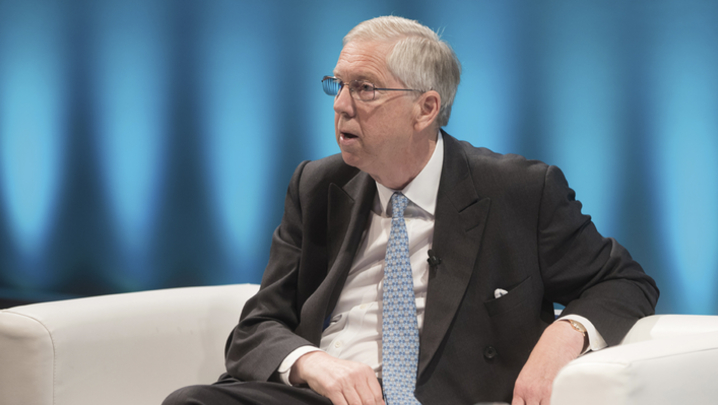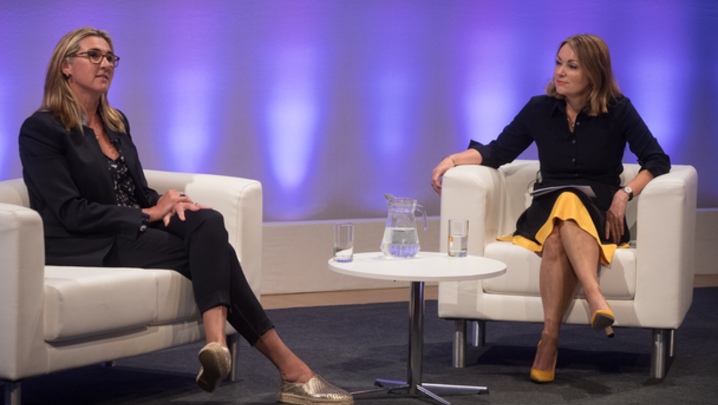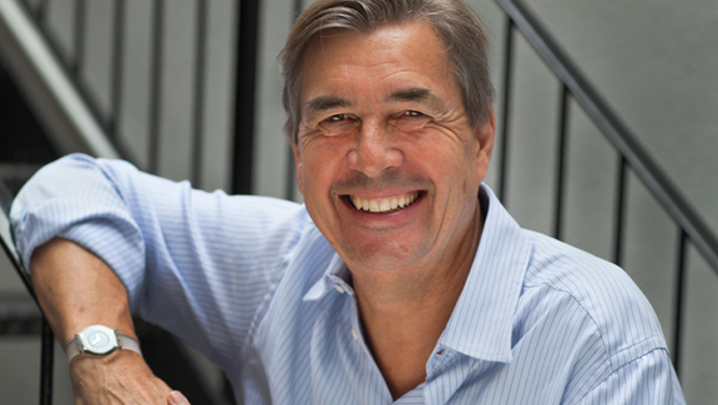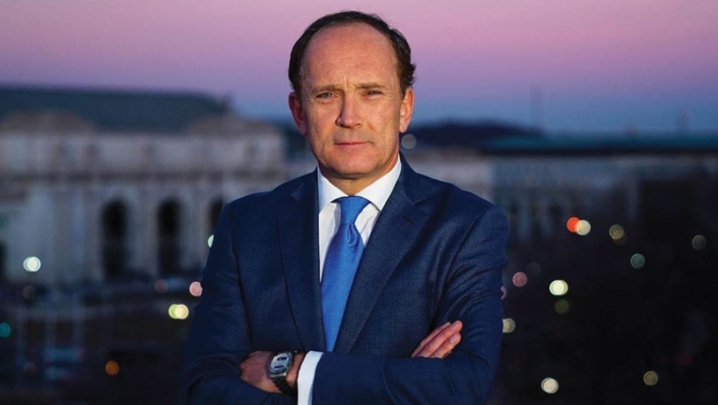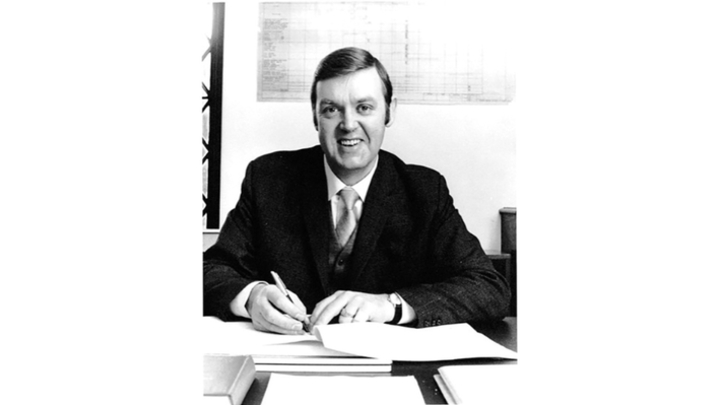Lisa Campbell talks to one of the most successful showrunners in TV history
A bit like gravity, The Big Bang Theory is an unstoppable force in global TV. The CBS series about socially awkward physicists is in its 10th season – that’s 232 episodes under its belt – and yet it remains the most-watched and highest-rated scripted series on US television.
Factor in its use as a launch pad for new shows and the eye-watering $1bn of syndication revenue for Warner Bros TV, and it’s little wonder that it has just been renewed for a further two seasons. A spin-off series, Young Sheldon, is also on the way.
Chuck Lorre, the man behind this stellar show, is something of a TV god in Hollywood. He has another global mega hit under his belt, Two and a Half Men, co-created with Lee Aronsohn. The series, fronted first by Charlie Sheen, then Ashton Kutcher, ran for 12 years. For six of those, it was America’s most-watched comedy, attracting audiences of around 15 million.
“First of all, failure is not something you overcome, it’s not an obstacle to climb over, it’s something you incorporate into your thinking.”
Comedy is a famously tough genre, so it is no surprise that Lorre, who is also responsible for CBS’s Mom and upcoming Netflix series Disjointed, is classed as one of the most successful showrunners in history.
Given that most US shows fail to get beyond their pilot, how does he do it? “To be fair, I’ve had a lot of chances. I probably don’t know when to quit,” he jokes.
Lorre, with his curly dark hair and beard, has an affable air and is chatty and engaging, despite a long day of interviews with journalists from all over the world.
It wasn’t all plain sailing: he was fired after just 12 episodes of Roseanne. But his work impressed producers Tom Werner and Marcy Carsey enough for them to allow him to run his first show, Frannie’s Turn.
This was soon billed a “noble failure”. But the legendary duo must have seen something in the young Lorre, because he was given a third chance, with Grace Under Fire. Unlike Frannie’s Turn, it lasted not five weeks but five seasons.
What is this knack for overcoming failure? “First of all, failure is not something you overcome, it’s not an obstacle to climb over, it’s something you incorporate into your thinking,” he argues. “If you work with someone who is difficult and toxic, and who makes you miserable and hate getting up in the morning, don’t do that.
“If you work with someone else who brings out the best in you, work with them. When you write a certain way and you see the audience respond, you have to ask yourself: why did that work, what’s different about that?”
Even The Big Bang Theory experienced teething problems, but the failings were quickly identified and utilised to create what many describe as the key to the show’s success: its clever, awkward-yet-relatable characters.
Indeed, it is rare to come across an ensemble cast that works so well on and off screen. So much so that, earlier this year, its five leads each took a $100,000-per-episode pay cut to help two co-stars in their bid for salary parity. They remain on a not insignificant $900,000 each, taking them close to Friends-level pay.
“I didn’t understand The Big Bang Theory when we did it the first time,” says Lorre. “I didn’t understand the characters and we had to fail with them to understand how naive and vulnerable they were.
“Their brilliance hid the fact that, in many ways, they were children and they were very easily hurt. So, when we did it a second time, we incorporated that information.
“We knew that the audience was going to be protective towards them, and rightly so. Even towards Sheldon, who, despite his arrogance, was very childish and so vulnerable in the world.”

It was Sheldon whom Lorre singled out for a show of his own, and the series, which features him aged nine, was popular among buyers attending the recent LA Screenings. Young Sheldon is being described as The Wonder Years meets Malcolm in the Middle. It is also the first time that Lorre has moved away from the multi-camera sitcom loved by US audiences to the single-camera comedy generally more popular with critics and awards juries.
The 65-year-old Lorre, who, remarkably, has never received an Emmy, asserts that the comedy is tonally very different to the original series, and hence is a risk. Yet, given its 8:30pm timeslot on CBS, the ambition is clearly another mainstream hit.
“It’s a fish-out-of-water story, really,” explains Lorre. “It’s about a brilliant, beautiful mind at nine years old in a family that doesn’t understand him. We’ve always avoided labelling Sheldon in the past. The motivation behind the new series is very much about accepting him as he is because he’s not going to change.”
Sheldon’s mother, played by Zoe Perry, will have a central role as a “fierce protector” of her son.
Lorre’s female characters in The Big Bang Theory have evolved considerably since the series began. Grace Under Fire’s central character is a recovering alcoholic divorced from an abusive husband. And Mom stars Allison Janney and Anna Faris as a mother and daughter both recovering from alcohol and drug abuse.
Is Lorre trying to address the calls for gender equality on screen and the desire for more interesting parts for women with these roles?
He refutes the idea of a dearth of female talent in comedy by citing Girls, Orange is the New Black and Tina Fey, adding: “I’ve always thought women are more interesting than men. They are more challenging, more articulate, more in touch with their feelings.
“Ask a man how he feels and the honest response is, ‘I have no idea, I don’t know. I feel hungry,’ he laughs. “Whereas women are much more articulate and emotive. From a writing perspective, that’s much more interesting.”
Not that he watches much comedy after spending the day immersed in it, preferring to go home and enjoy drama such as Luke Cage and Narcos.
However, he cites Monty Python as a major influence: “You can’t grow up in America and fall in love with comedy without having been moulded by Monty Python. It became part of our DNA… it remains really important.”
He says that he was asked to return to Roseanne for its comeback series but emphasises that his busy schedule was a factor in his decision to say no.
It’s one of several comebacks (Will & Grace is another notable example) and echoes a trend in the UK. Here, we’ve seen the return of such shows as Porridge and Cold Feet.
Is the fad for rebooting classic comedy evidence of a lack of ideas or risk-taking among executives?
“I’ve watched people try and run a show and be a one-man band and do everything. And they fail. It doesn’t work."
Lorre, who acknowledges his past reputation for challenging executives over creative issues – “I fought against the boundaries of network television a lot in the past” – suggests that comebacks are not without risk.
“I think it’s a great thing,” he says. “What a challenge to pick up a series decades later. How much have the characters changed? They have to change, but how much? There’s a lot of questions to ask before you start writing the show. It’s a challenge; I’m just glad it’s not mine.”
How much of a challenge was it working for Netflix after years of working for US network TV? Is there truth in the claim of greater creative freedom?
“It is true,” says Lorre, who expresses sympathy for the networks, which, unlike the streaming services, are restricted by advertising and regulation.
“It’s also fun,” he adds. “There are no time or language restrictions. You quickly realise that, when you do 10 episodes and they’re all available at once, the shows have a continuity. For show four, you have to assume the audience has seen shows one to three and they may have seen them a few minutes ago, so show four simply continues.
“So, it’s 10 chapters of a book, as opposed to 10 different episodes. And that’s a different way of writing that assumes the audience is with you for the whole ride. Instead of writing haiku, you’re writing an epic poem.”
Lorre’s series Disjointed, co-written with David Javerbaum and starring Kathy Bates, is the story of a woman fulfilling her dream of opening a cannabis factory with her son, a security guard. It launches on Netflix in August.
This means that Lorre has been splitting himself across four big shows. How does he maintain quality across such a huge output?
“I’ve watched people try and run a show and be a one-man band and do everything. And they fail. It doesn’t work. TV is too difficult to be anything other than a collaborative medium – there’s just too much to do doing 22 or 24 episodes in eight months.
“If you don’t collaborate, you’ll burn out. The people I admired didn’t care who had the good idea, they just said, ‘It’s a good idea, write it down.’ You have to put your ego aside and ask if it’s working, because it’s really hard to make stuff work.”
He says that he looks for enthusiasm more than anything else in the writers room and defines one of his key roles as “protecting the characters at all costs.… It’s to know the big picture and say, ‘Let’s not do it because, in the long run, it hurts the characters and they’re more important than any one joke.’”
There’s one particular ego that Lorre has tackled – albeit in the closing credits or “vanity card” at the end of his shows – and that is Donald Trump’s.
Are there plans to develop that into a series or make a move into political satire, given the current climate?
Lorre can only joke about this idea: “I fear that would be like a guy attacking a tank with a banana.”

